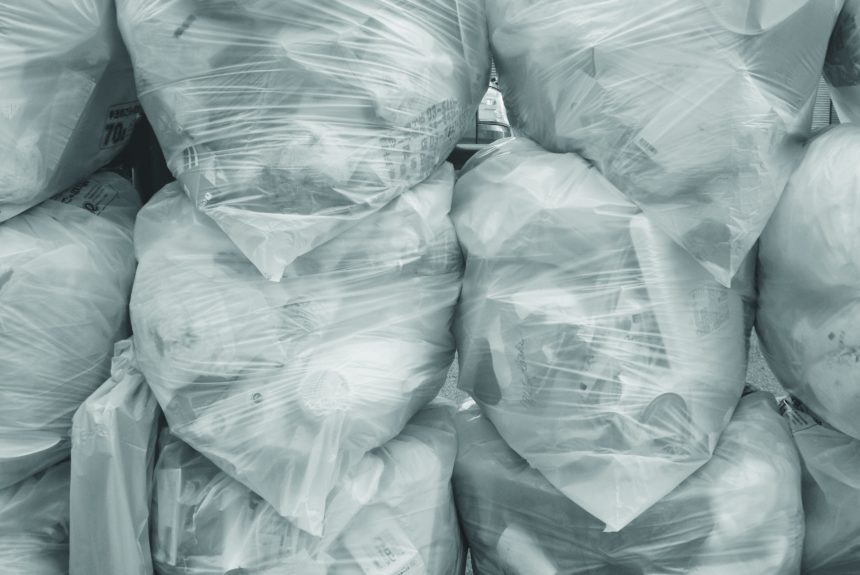Trash has a bad reputation. According to the World Bank, the world generates about 2 billion tons of municipal solid waste every year. Moreover, one ton of garbage is equivalent to 6.2 tons of carbon dioxide, meaning all that waste contributes precipitously to global climate change. The places where trash ends up are no better. Landfills account for approximately five percent of all global greenhouse gas emissions. In the U.S., landfills alone are among the nation’s most significant sources of methane, accounting for an estimated 17.4% of all man-made methane emissions. Municipal solid waste landfills, in particular, emit an emissions equivalent of having 21.6 million vehicles on the road for one year, or enough to power nearly 12 million people’s homes. But what if organizations and companies can repurpose that trash into valuable forms of energy production like clean diesel fuel to power cars or ammonia for chemical fertilizers?
That is precisely what Sierra Energy, a Davis, CA-based company, has in mind. The startup, founded in 2004, is focused on developing clean energy solutions to waste management. Using its patented FastOx Gasification technology, household trash, demolition materials, tires, medical waste, and even hazardous waste is converted into clean energy in a bid to reduce the world’s carbon footprint. The technology is an ingenious solution on two ends. On the one hand, the company is being paid to take the garbage. On the other hand, they are generating revenue by optimizing that waste stream and transforming it into ready-to-sell renewables on the market. Trash is essentially being turned into profit while adhering to a clean end-to-end business model that creates new products and jobs.
“You can make the world a better place while also making a profit,” Mike Hart, CEO of Sierra Energy, said at the 2017 IMPACT Summit in Los Angeles.
“Every ton of garbage in a landfill creates more than two tons of greenhouse gas (GHG) in the form of methane, which is 84 times more potent a GHG than carbon dioxide,” Hart said.
One innovative solution? Sierra Energy’s FastOx gasifier, which allows the company to recycle nearly any kind of waste and perform “molecular sorting” of the solid waste, first into gas and then into liquid biofuel.
“We can literally take anything, any waste, and turn it into an original product. It truly allows for 100% recycling,” revealed Hart.
Certain products, like certain inorganic materials, can’t be recycled into gas. Instead, these products are converted into a byproduct used as an environmentally safe construction material.
According to Hart, the process of generating diesel from gas has a long history, rooted in the use of centuries-old blast furnaces to convert any mixture of materials into synthetic gas. But Sierra Energy is one of the first to process waste with the technology, incorporating garbage as a valuable input for gasification. Whereas the conventional blast furnace is a major industrial polluter, Sierra’s contemporary clean-energy version of the high-temperature vessel can generate a sulfur-free liquid diesel fuel 20 times greener than the California fuel standard from trash. The innovation marks a paradigmatic shift in the way local municipalities approach the issue of waste management.
The company claims FastOx gasification will someday eliminate the need for landfills. If the U.S. gasified all its waste with this technology, the company states that the energy would be sufficient to power 14 million homes.
In the first-ever demo facility of its kind, Sierra Energy partnered with the Department of Defense, the U.S. Army, and the California Energy Commission to build a small-scale commercial plant at Fort Hunter Liggett in Monterey County. Because FastOx-powered gasifier plants do not rely on external energy to operate, the facility is waste-free. The plant produces its energy on-site in small, scalable units (about 20% of the energy created is used to run the plant itself). According to its website, the demonstration facility can handle 10 tons of waste per day.
Over the next decade, Hart says the company plans to build community-scale systems that can absorb 50 tons of waste per day, equivalent to taking in trash from approximately 50,000 people. The company’s grand vision has attracted a slew of investors, most notably the Bill Gates-led fund Breakthrough Energy Ventures.
In the summer of 2019, the company raised $33 million in an investment round led by the Gates-backed startup. The fund also counts high-profile investors like Mark Zuckerberg, Jeff Bezos, and Richard Branson. The company has raised over $90 million up-to-date.
Clearly, the industry’s future is tied to the economics of climate change. External factors like fluctuating prices on carbon and the advent of regulations will determine whether companies like Sierra Energy are ultimately successful or not. But as the effects of climate change become more and more apparent, long-term market trends will coincide to favor a significant clean energy push. This shift in policy prioritization will no doubt reward innovative startups like Sierra Energy, in addition to the communities that adopt the technology and benefit from both a two-way revenue stream and healthier, cleaner air.
Nathalie Voit is a freelance content creator and a graduate of the University of Florida. She is an alumni of The Heritage Foundation’s Young Leaders Program.
The views and opinions expressed are those of the author’s and do not necessarily reflect the official policy or position of C3.
